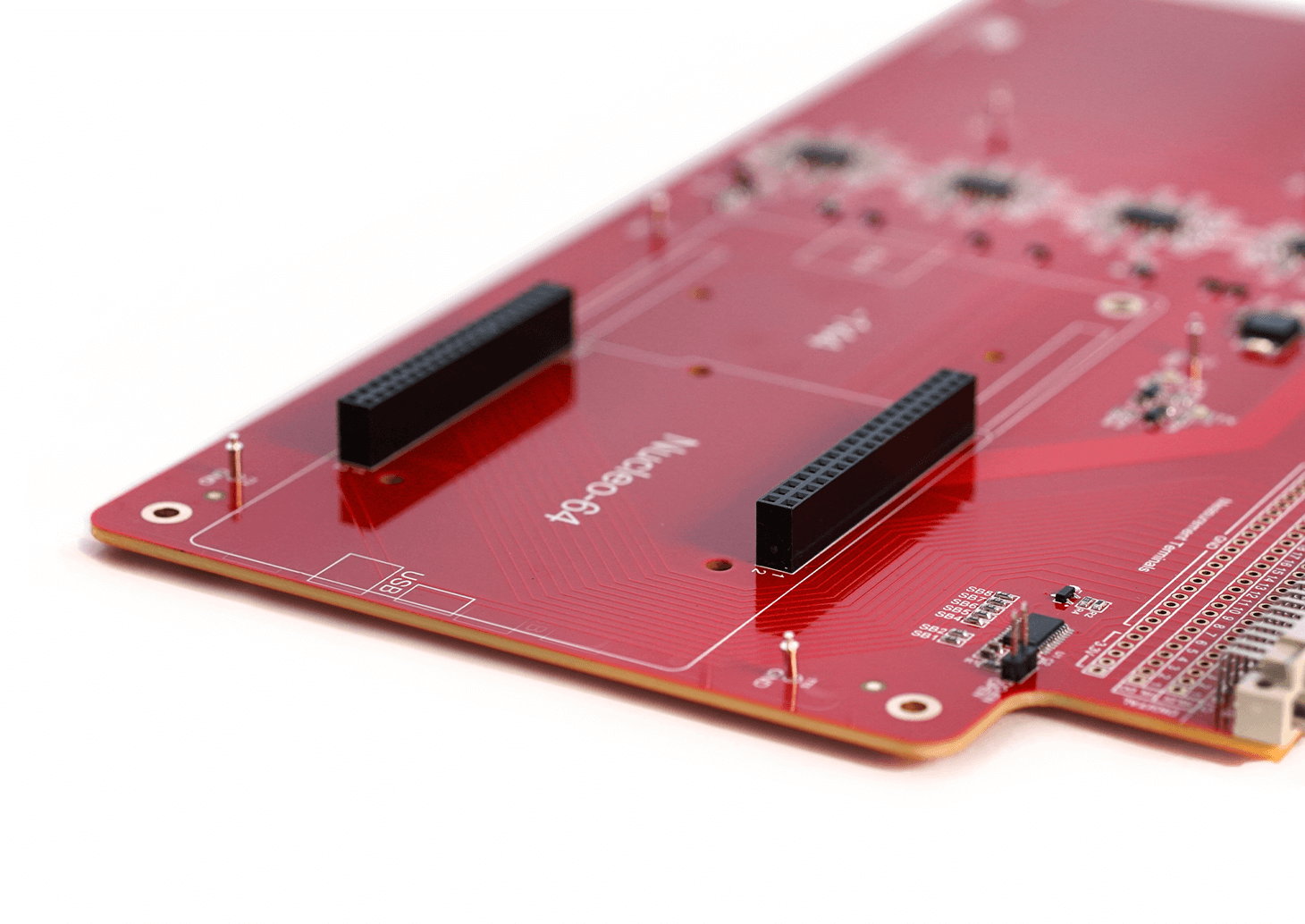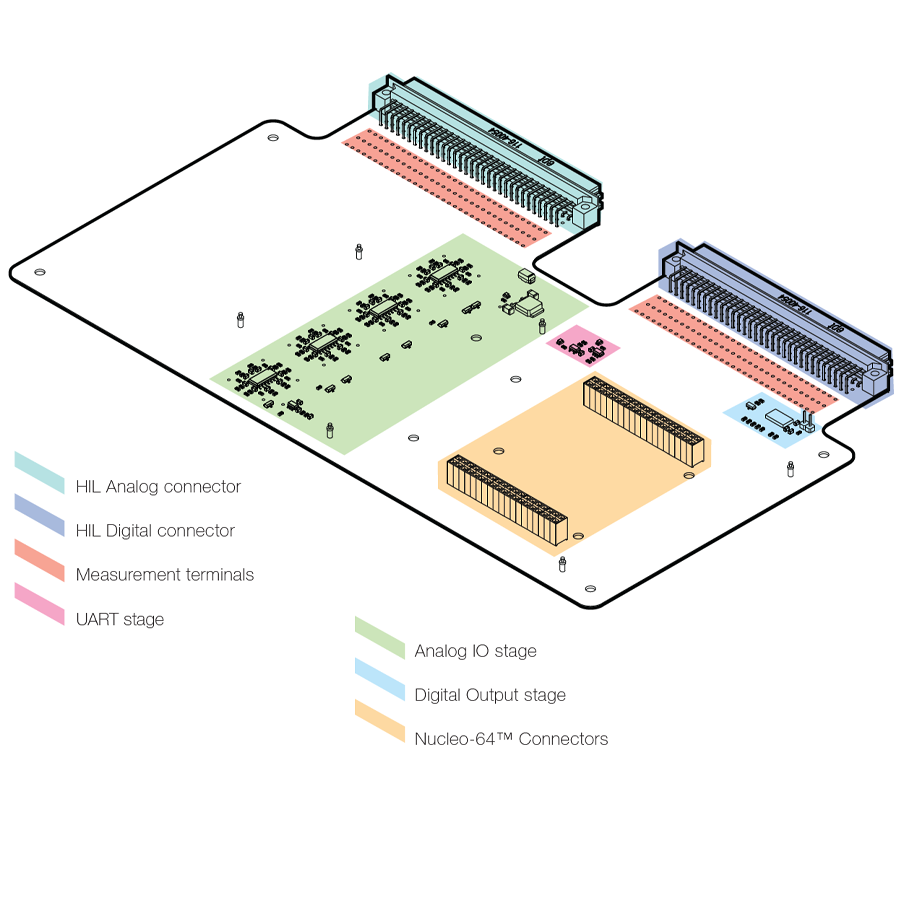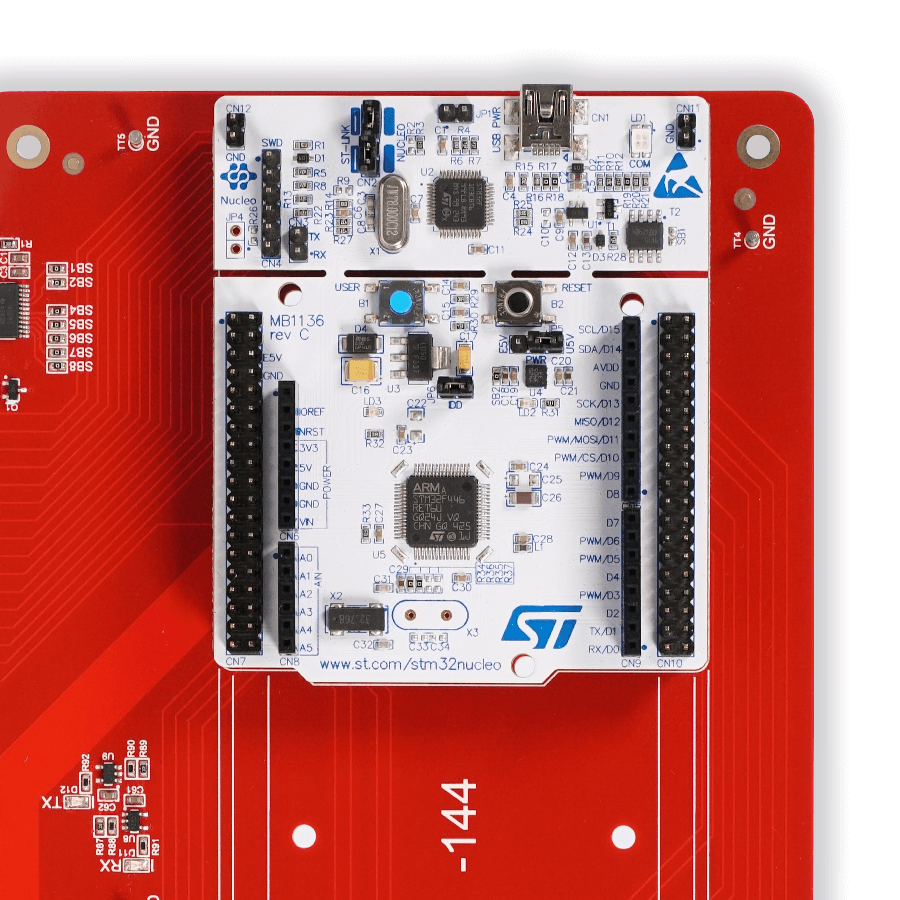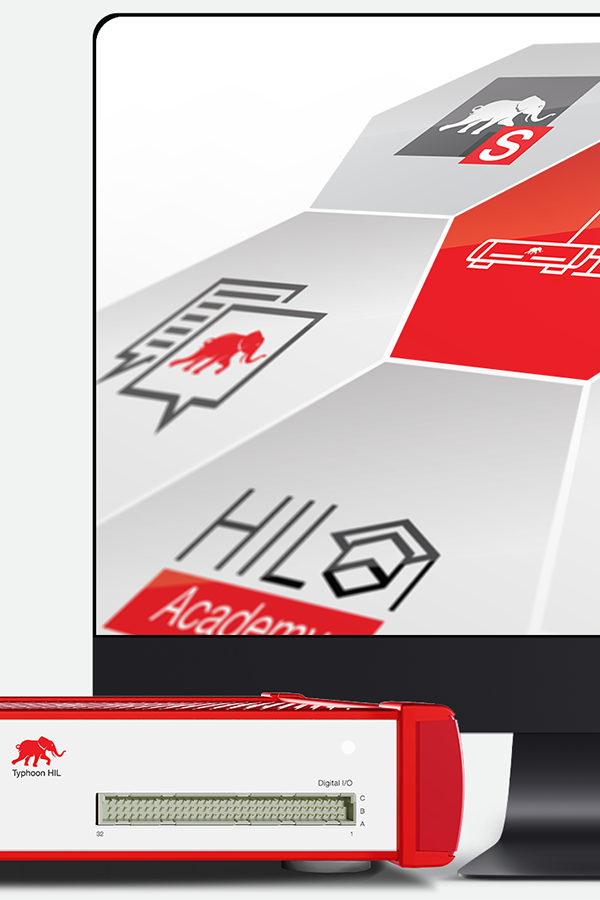HIL Nucleo-64 Interface Card

Information about the HIL Nucleo-64 Interface, an interface board which allows for seamlessly connecting STM Nucleo-64™ development kits to Typhoon HIL simulators.
Overview of the purpose and connectivity of the
HIL Nucleo-64 Interface
The HIL Nucleo-64 Interface is an interface board, designed to enable a seamless interface between Typhoon HIL simulator devices and Nucleo-64™ development kits from STMicroelectronics. Technical Details shows signal routing for STM32F334 and STM32G474 Nucleo-64™ boards. Other boards may be supported provided the header pins align and can be physically connected.

- Sockets for one Nucleo-64™ board
- All HIL signals available through measurement terminals
- 12V HIL power supply as Nucleo-64™ external power supply input (Nucleo-64™ JP5 selection)
- 18 HIL Digital Inputs (2 of which can be repurposed as HIL AI/AO)
- 9 HIL Digital Outputs (8 level shifted to 3.3V, 1 of which can be repurposed as HIL AO/AI and 1 Nucleo-64™ Open-Drain Reset)
- 16 HIL Analog Outputs (+/-10V scaled to 0-3.3V, 3 of which can be repurposed as HIL AI/DI)
- UART on a pair of HIL DI/DO pins with LED indication
Interface for STMicroelectronics
Nucleo-64™ boards.

There are currently approximately fifty versions of Nucleo-64™ boards available on the market, each with its own features and pinout variations. Before connecting any Nucleo-64™ or Nucleo-144™ board to the HIL Nucleo-64 Interface check for pin variants that can result in electrical incompatibility



